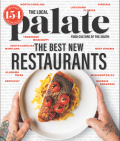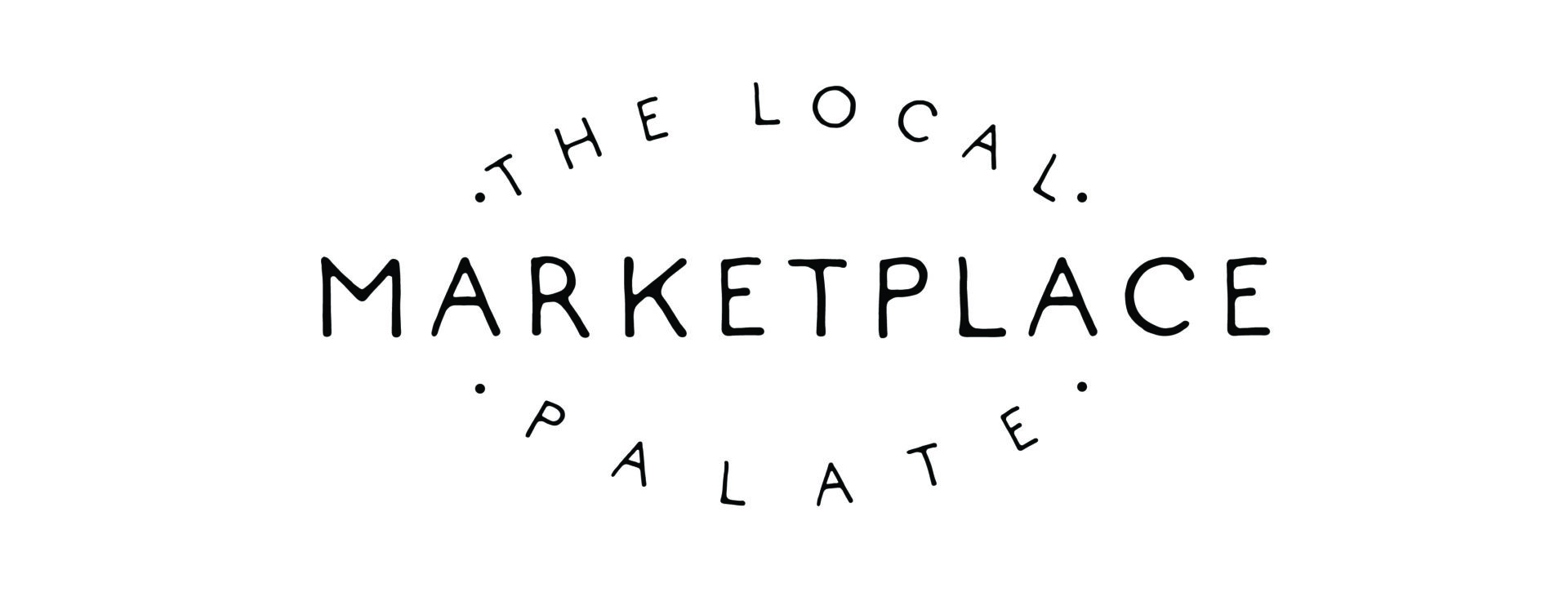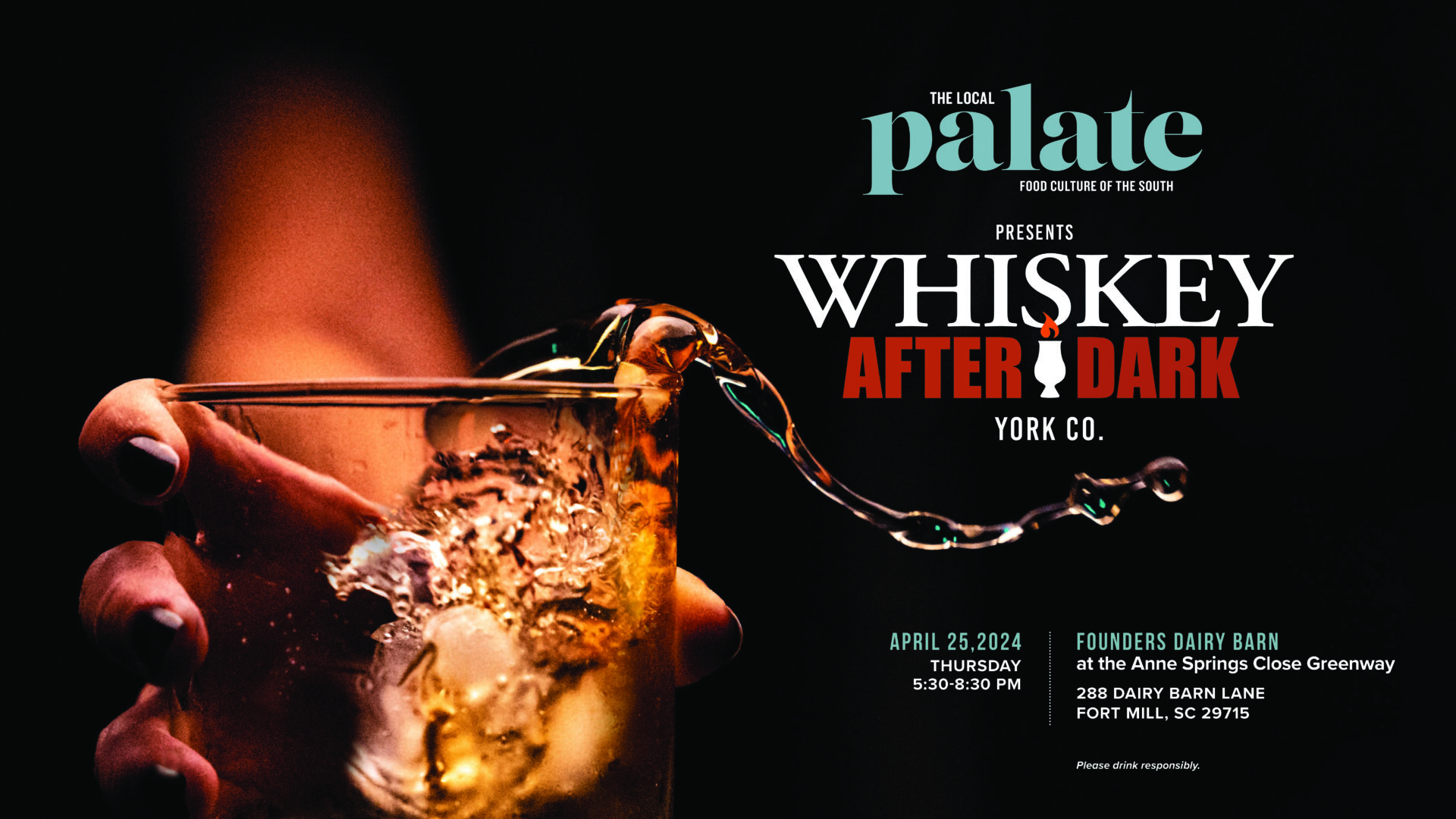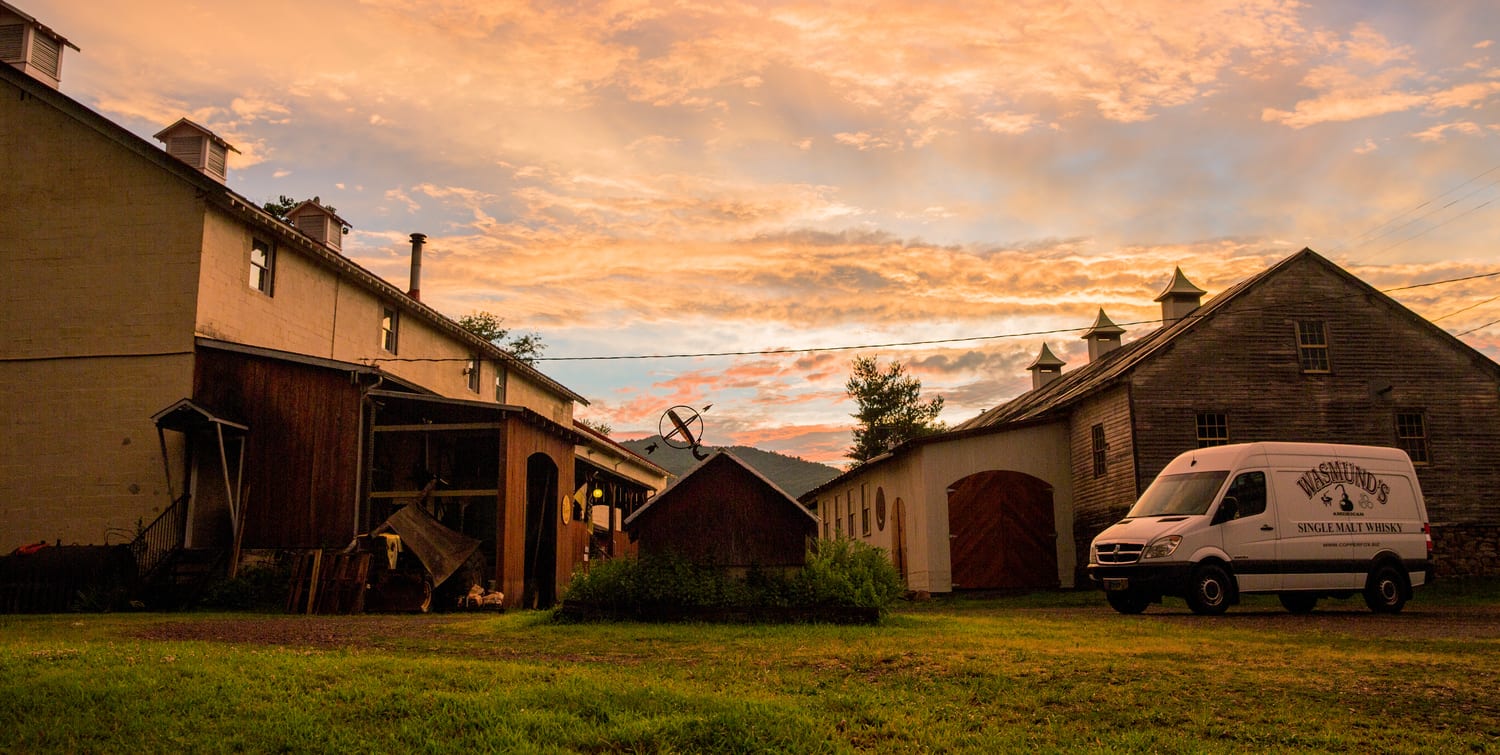Continued from Resetting the Table Series:
“How Beverage Professionals are Weathering the Storm”
The Distillers
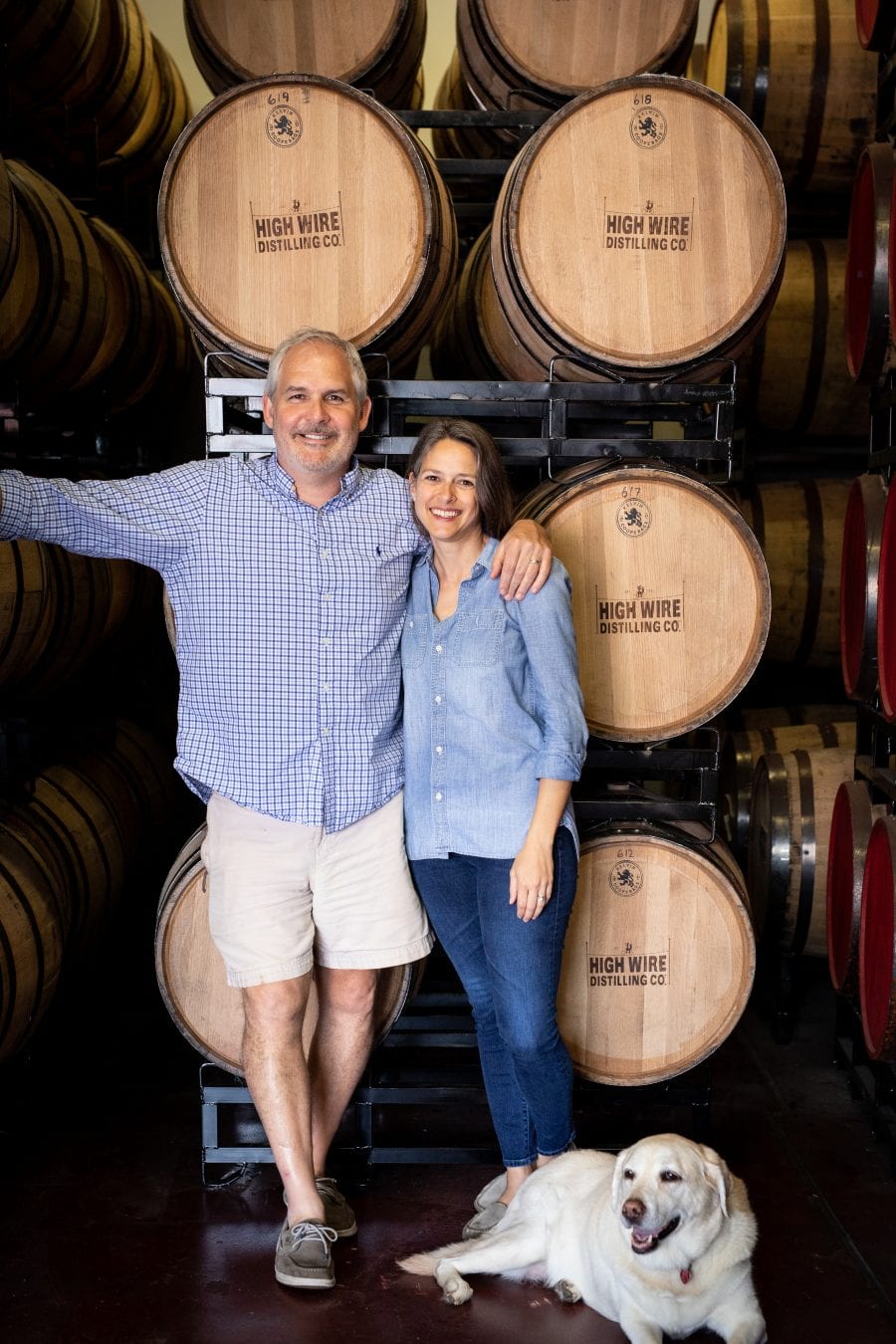
Charleston’s High Wire Distilling is owned and operated by the husband-and-wife team of Scott Blackwell and Ann Marshall. The dynamic duo has received multiple nominations (including this year) from the James Beard Awards in the Outstanding Wine, Spirits, or Beer Producer category and have earned legions of fans for their innovative use of local and heirloom grains in the production of their high-end spirits. Jeff Pennington of Pennington Distilling Co. is also the recipient of some recent acclaim with his new Davidson Reserve Tennessee Whiskey winning a Double Gold and Best in Class at this year’s prestigious San Francisco World Spirits Competition, as well as additional awards for some of his other products.
So the timing was unfortunate when the COVID-19 crisis ostensibly shut down much of their operations in early March, but both companies optimistically see the opportunity for growth coming out the other side of these market conditions.
Blackwell does lament the events that occurred at what should have been a celebratory time for the distillery. High Wire had just moved their operations into a brand new facility and had vastly increased the capacity of their tasting room and their barrel storage as well as installing a new still from Germany that will eventually quintuple their production capabilities. He recalls, “We moved ten days before this all hit. We hadn’t even gotten our new equipment online yet. Charleston Wine + Food Festival was the following week, and we didn’t get our final official Certificate of Occupancy until a week later. We got called to a meeting of some other hospitality people in town to discuss what was happening in Charleston, and we were like ‘OK, let’s pull the plug’ that day, and then the governor shut down the state the next day. For the first couple of weeks, we were just in complete shock like a lot of people. Then people came to us and asked if we were going to make hand sanitizer.”
That wasn’t nearly as crazy of a question as it sounded, as distilleries all over the country were pivoting to supply the much needed stores of hand sanitizer required at the beginning of the pandemic. Distillers have the ability to manufacture alcohol that is the major component of commercial sanitizer, to which they add other required ingredients to ensure that it is not palatable and can be sold to the public. Blackwell recalls, “We thought, ‘We can’t even make alcohol right now; our equipment isn’t up and working yet!’” Marshall adds, “We had just drained our supply of heads and tails [non-drinkable byproducts of the distilling process] because we didn’t want to have to move a bunch of bulk alcohol, and that’s what a lot of distilleries were able to jump in with at first or they were just burning through their stocks of neutral spirits. We’d been through supply chain issues in tumultuous moments like this with our prior bakery business, so we knew that the neutral spirit that we source for our vodka and gin was going to become a hot commodity, and we didn’t want to be in the position to have to scratch for that since our stills are not built for that. We saved ours for internal use and, sure enough, the lead times to buy it went way out.”
Instead, they decided to make more constructive use of their down time.“We used the time to unpack boxes,” explains Blackwell, “and then we decided that if we’re gonna make sanitizer, let’s get some local corn from a local farm and at least flesh out our system because we had all new equipment. Sure enough, every piece of equipment wasn’t working properly so we were able to go through them one by one and fix little problems. We thought, ‘At least we’re making things that no one will ever drink!’ So we bought 50,000 lbs. of corn and worked with a local brewery that had a bunch of stuff that they were getting rid of, and we distilled that. We donated that sanitizer through the fire stations around town to the community and to some homeless shelters. Thankfully the supply chain has caught up with hand sanitizer, because it’s not really the business we want to be in. It served a few purposes: it got us through this, we made our payroll for a month and we did some good. Now we’re back to running whiskey!”
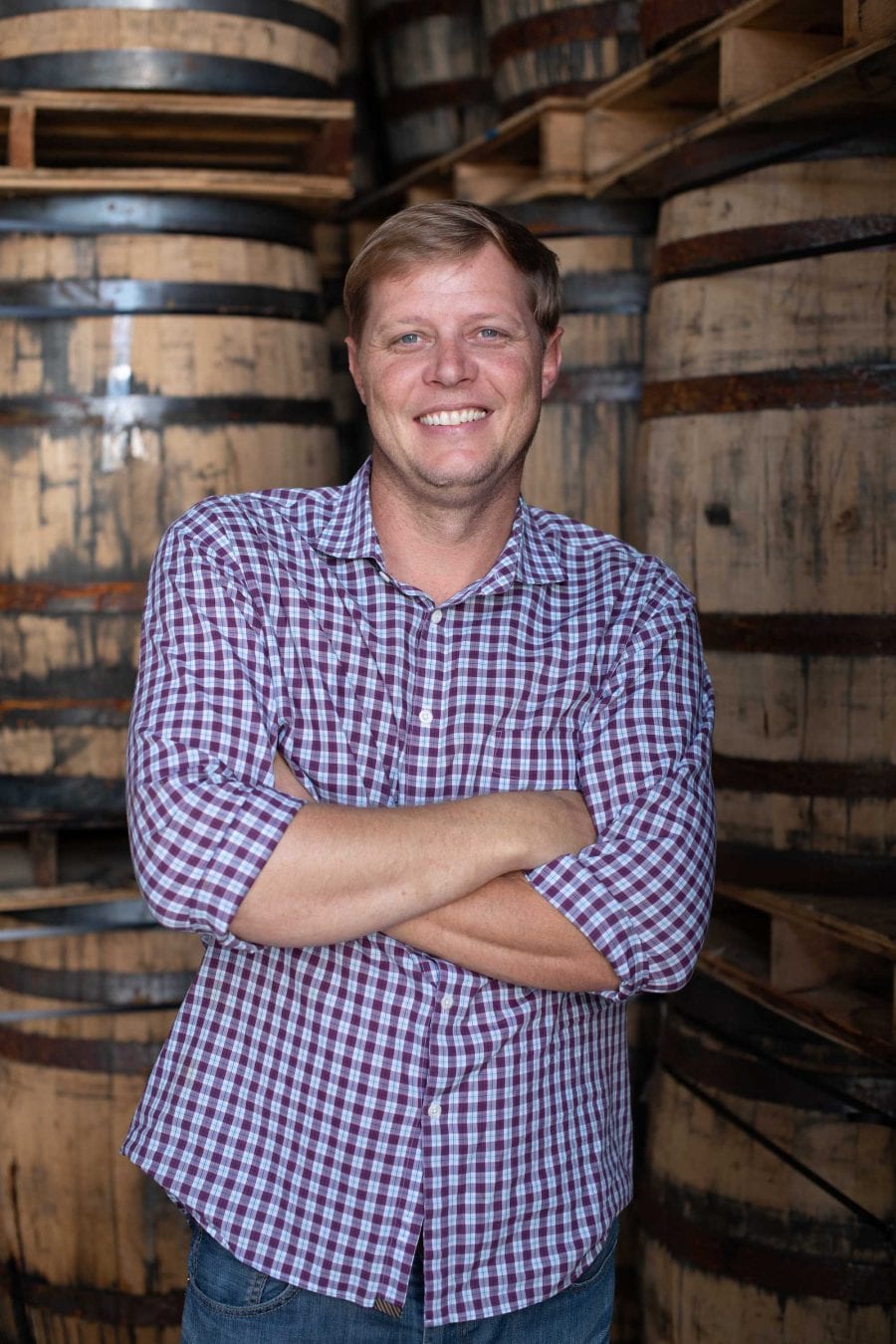
In Nashville, Jeff Pennington also pivoted to the hand sanitizer business, and he’s not entirely sure that it isn’t a business he wants to be in, at least for the near term. “Our Davidson Reserve line of whiskeys is my passion,” he explains, “but they say vodka pays the bills!” Indeed, while Pennington produces some fantastic Tennessee whiskey, straight bourbon and rye, as well as a few other specialty products, the vast majority of their revenue comes from their popular Pickers Vodka, an affordable spirit made using non-GMO corn that is a mainstay in the wells of bars across the Southeast. Pennington jokes, “I guess you could say that sanitizer is another vodka.”
Because of the popularity of Pickers in high volume bars like the Florabama in Perdido Key and the honky tonks of Lower Broad in Nashville, Pennington’s business was much more vulnerable to a disruption of their on-premise customers. He explains, “We’ve probably got a little more retail business than a lot of craft distillers.
Our mix overall last year was about 38% on-premise, still higher than a lot of your mainstream brands that might be more like 80/20 in favor of retail sales. And outside of Tennessee, we’re more like 60% on-premise, so we really depend on the bars. When you’re not local, you count on those restaurants and bartenders.So you can imagine that this is not the most ideal situation for our business.” Pennington was also affected by the March 3 tornado that swept through urban areas of Nashville and knocked his local distributor out of commission for a while. “We lost 40% of our business altogether for the first 60 days. Our distributor got hit, and we didn’t ship anything for two weeks in early March.”
There were silver linings, though. “One thing I’ve always been jealous of was the tours and tasting business that a lot of my friends in the craft distilling business get,” explains Pennington. “For some crafts, that can be 50%-60% of their revenue, especially if you’re really small boutique guys. We were still just easing into tastings, but it was a small part of our business. I think maybe we were better suited for this than most, but it still hurt. I’m not a pessimist, I’m usually more of an optimist, but I’m really not bullish on a fast recovery. I hope there is, but I just don’t know how you’re going to bring back that many jobs. Over time, will we see more and more restaurants close?”
Pennington started to search for a solution. “We pivoted to the sanitizer business really by accident. I think everybody got into it, but we dipped our toe in and within 3-4 days, we were all in!” he explains. “The mayor’s office reached out to see if we could help with some hand sanitizer. We had the stills, so we made 500 gallons for them. It cost us a few thousand dollars and helped the community, and we felt good about it.” Soon, other small communities and organizations called and Pennington found himself making more like a thousand gallons at a time.
Then things started to ramp up. Pennington recalls, “We got a call from a distillery in Oregon that had got a contract from the DOJ for a bunch of prisons, and they asked if we could make some bulk stuff for them. I said, ‘If they’re paying, then sure!’ Next thing you know we got a call from Amazon looking for a ton for internal use at Whole Foods.Within about ten days we had gone from making 500 gallons a day to 16,000 a day! We upgraded a lot of our equipment overnight and were able to hire fifteen displaced hospitality workers to come over and help us package the product.”
As the business grew, Pennington teamed up with Nashville’s Fresh Hospitality, a company that partners with restaurants to provide support as they grow their individual businesses. Fresh had a connection with a commercial ethanol plant that could help supply the product that Pennington needed to grow this new business segment.
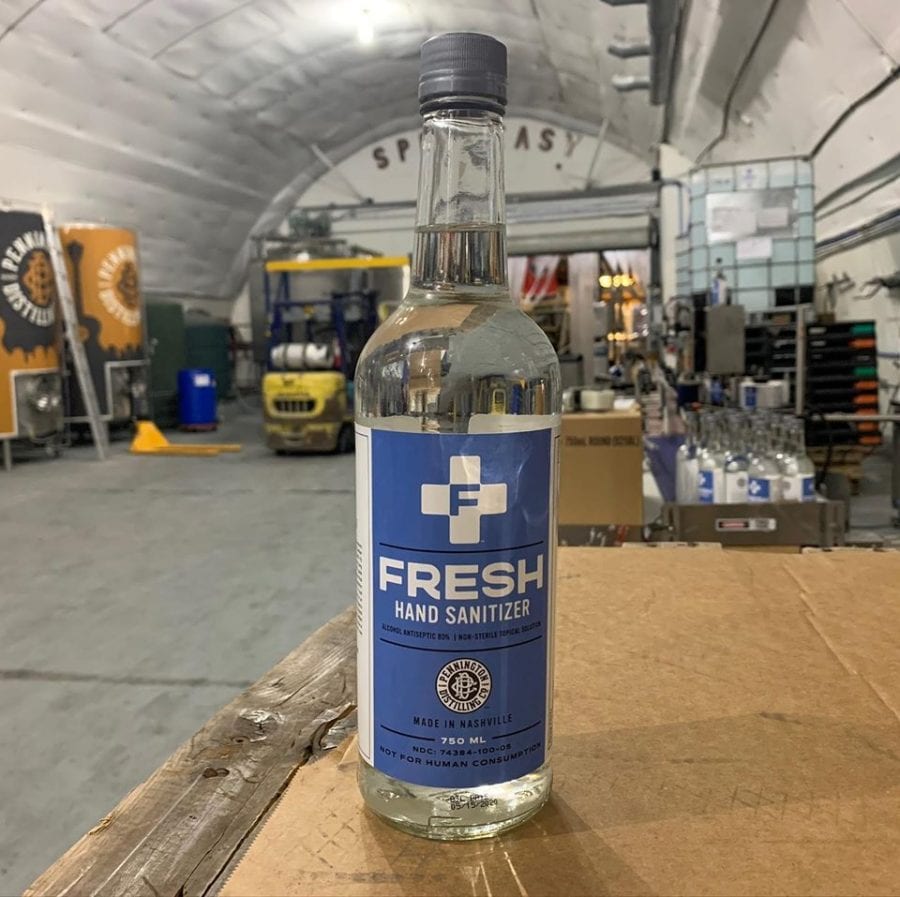
Pennington explains another benefit of this development: “It allowed us to do a lot more giveaways. The first time we posted on Facebook that we had free sanitizer to hand out. It was at about 9:51 am. By 10:01, we had cars lined up and they ended up stretching all the way through the neighborhood back to the interstate off ramp We’ve figured that we’ve given away more than $220,000 in free sanitizer, but we’ve sold enough to be able to do this. Sometimes it’s just dumb luck!”
Back in Charleston, the High Wire crew was taking a more measured approach to the future. Blackwell shares, “Our new facility has an event space that seats 250 plus a full kitchen, but nobody was looking for that right now. Our tasting room had grown from 16 seats to a space that could easily seat 75, but we weren’t able to open that. We’ve added all sorts of bells and whistles at the new location including a loading dock, a silo to store bulk grain, a new boiler and fermenters.” Unfortunately, the demand hasn’t returned yet, but Blackwell looks on the brighter side. “The only thing worse would have been if we hadn’t already been ready to open, because if we were close to opening but couldn’t get our inspections done, we couldn’t have operated. Now we’re free to run when we want to.”
The couple knew that their decisions reached beyond the walls of their distillery, as Blackwell explains: “We had contracted with four farms to grow Jimmy Red corn for us.” This heirloom corn is the raw material behind High Wire’s flagship whiskey. “They were calling to see if they should buy seed. We went ahead and planted all 300 acres hoping to yield a million pounds of grain, about five times more than last year. If it’s going to be our flagship product, we need to figure out how to position it and stay committed to it!”
Still, Blackwell has concerns, sharing “I’m afraid that craft spirits are going to be seen as a luxury, so we anticipate a regression of our company by about 2-3 years. We’ve got to look at how to grow it again. We believe that regionality will be the new local, so we’re planning to plant our flag in South Carolina and Georgia and start growing again from there. We feel like we’re poised to do a lot more business, and we’re bullish on wholesale.”
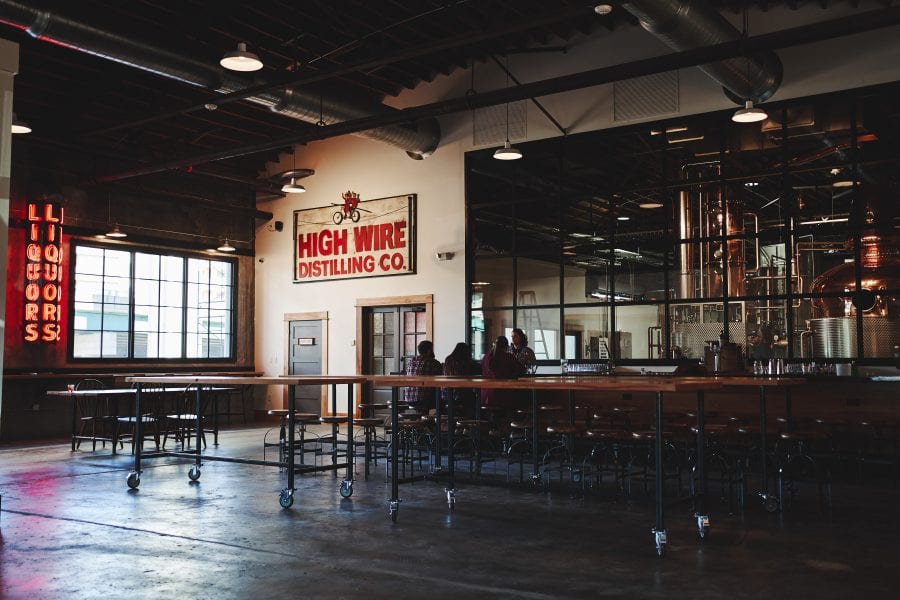
One area of growth that High Wire is looking forward to is in their tasting room. Marshall and Blackwell have been meeting with legislators in an attempt to modify the rules around tasting room sales in the state. “Right now,” Blackwell explains, “if you purchase a tour, we can serve you up to two cocktails or three ounces of straight spirits as a tasting. We have to close at 7:00 pm and all day on Sunday, and we can’t offer food service. We’re just asking for parity with the laws that breweries operate under. There’s only one way through this, and it’s forward. There’s no retreat. We’re in this building; we bought the equipment. If we were starting a business right now, this would be a great time to be in construction mode, so we plan to grow into our space.”
Marshall admits that times have been strange: “Being married to your business partner, we bring it home. We’ve had to set some boundaries here at the house.” She ends on a positive note, gushing, “It’s been the best spring here in Charleston! The weather has been perfect. It’s not a bad time or place to be quarantined!”
Pennington also has something to look forward to now that he’s back making whiskey again. He explains, “We haven’t been running the whiskey stills since March 28, because of all the chemicals that we have to mix in with the sanitizer to meet the WHO recipe. We could taste it in the air, and we depend on using open wood fermenters. We waited because we were lucky enough to not have to furlough anybody or lay anyone off, so we figured why push it until we’re absolutely sure we can make great whiskey again? When we won those awards for Davidson Reserve, we didn’t really get much of a chance to promote it. We bought some billboards, but then nobody was driving. Bartenders and servers are our best ambassadors, so now that they’re coming back, we look forward to educating them. The good thing is that the juice is in the barrels, and it’s in the bottles, and now we’re making more of it. We’ll soon get the chance to get out there again and prove how good it is!”
Resetting the Table: How Beverage Professionals Are Weathering the Storm
Previous Interview Next Interview
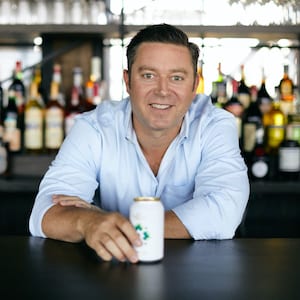
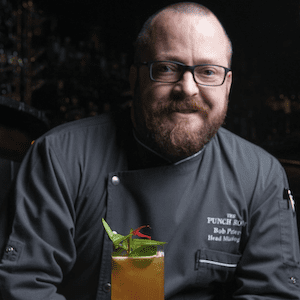
share
trending content
-
Exploring Mississippi: A Quintessential Southern Experience
-
Recipes From Our Summer Issue
by TLP Editors -
Elevate Your AWESOME with an Alpharetta Music Getaway
by TLP's Partners -
9 Noteworthy Tennessee Restaurants | Listen
by Margaret Littman -
Outdoor Adventure and Historic Charm Awaits in St. Martin Parish
by TLP's Partners
More From In the Field
-
From Pop-Up To Brick-and-Mortar | Listen
-
The Return of the Lynnhaven Oyster | Listen
-
What’s On the Horizon for 2024
-
Sorelle: La Dolce Vita in Vogue
-
Keya and Co. Turning Sadness into Sugar
